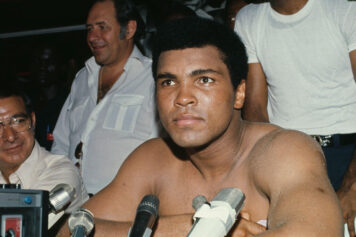The National Security Agency secretly tapped into the overseas phone calls of prominent critics of the Vietnam War, including civil rights leader Martin Luther King Jr., boxing champion Muhammad Ali and two actively serving U.S. senators, newly declassified material has revealed.
The NSA has been forced to disclose previously secret passages in its own official four-volume history of its Cold War snooping activities. The newly-released material reveals the breathtaking – and probably illegal – lengths the agency went to in the late 1960s and 70s, in an attempt to try to hold back the rising tide of anti-Vietnam war sentiment.
That included tapping into the phone calls and cable communications of two serving senators – Idaho Democrat Frank Church and Howard Baker, a Republican from Tennessee who, puzzlingly, was a firm supporter of the war effort in Vietnam. The NSA also intercepted the foreign communications of prominent journalists such as Tom Wicker of the New York Times and the popular satirical writer for the Washington Post, Art Buchwald.
Alongside King, a second leading civil rights figure, Whitney Young of the National Urban League, was also surreptitiously monitored. Heavyweight boxing champion Ali was put on the watch list in about 1967 after he spoke out about Vietnam. He was jailed for refusing to be drafted into the Army, was stripped of his title, and banned from fighting – and is thought to have remained a target of surveillance for the next six years.
The agency went to great lengths to keep its activities, known as operation Minaret, from public view. All reports generated for Minaret were printed on plain paper unadorned with the NSA logo or other identifying markings other than the stamp “For Background Use Only.”
They were delivered by hand directly to the White House, often going specifically to successive Presidents Lyndon Johnson, who set the program up in 1967, and Richard Nixon.
The lack of judicial oversight of the snooping program led even the NSA’s own history to conclude that Minaret was “disreputable if not outright illegal”.
The new disclosures were forced from the current NSA following an appeal to the Security Classification Appeals Panel by the National Security Archive, an independent research institute based at the George Washington University.
“Clearly the NSA didn’t want to release this material but they were forced to do so by the American equivalent of the supreme court of freedom of information law,” said Matthew Aid, an intelligence historian specializing in the NSA.
Together with William Burr of the National Security Archive, Aid has co-authored an article in Foreign Policy that explores the significance of the new disclosures. In addition to the seven names of spying targets listed in the NSA history, the two authors confirmed the names of other targets on the watch list from a declassified document at the Gerald Ford Presidential Library in Ann Arbor, Michigan.
They include the actor Jane Fonda, Weather Underground member Kathy Boudin and black power activist Stokely Carmichael. In total, some 1,650 individuals were tracked by the NSA between 1967 and 1973, though the identities of most of those people remain unknown.
Read the rest of this article in the Guardian


